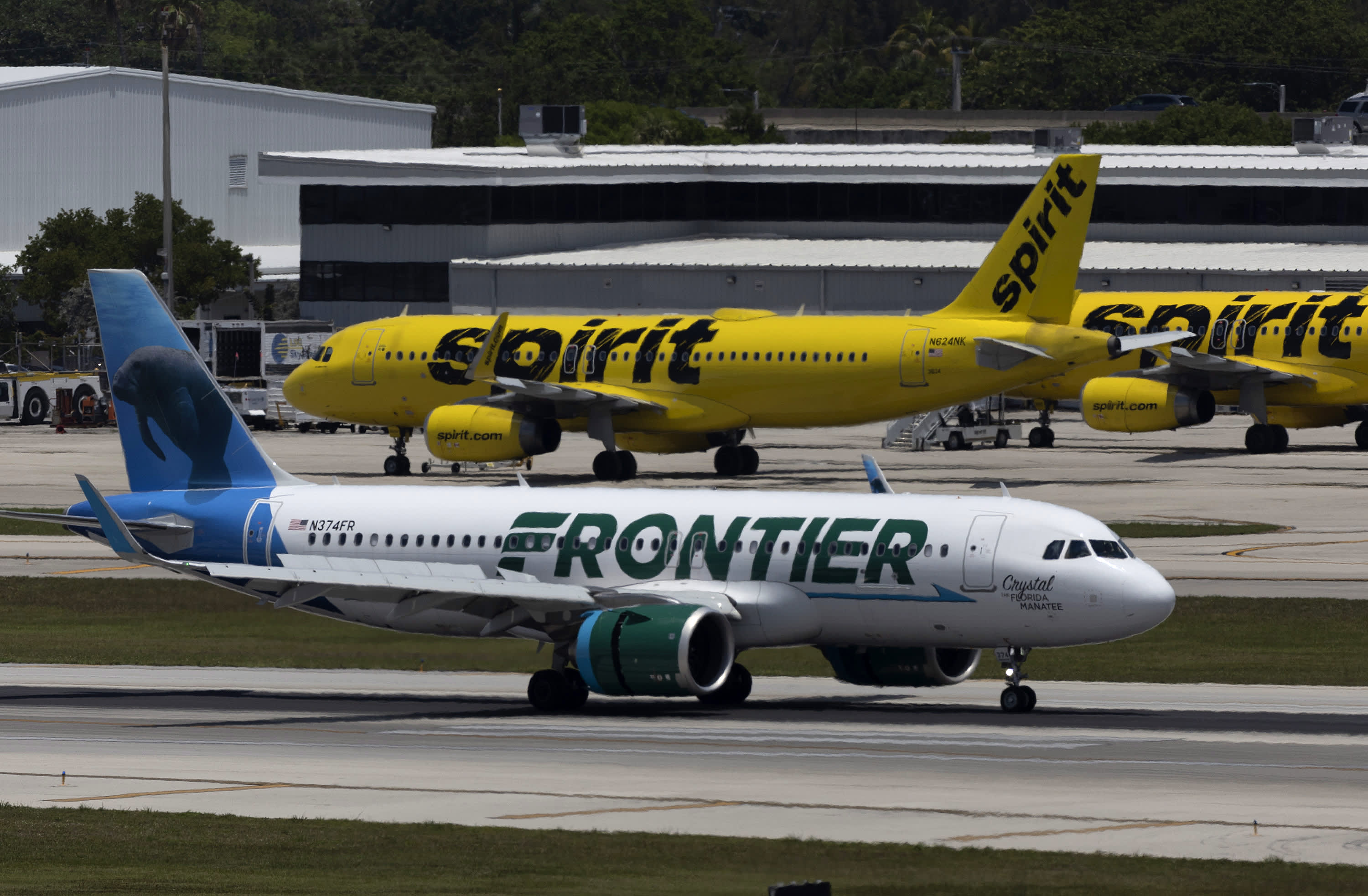
A Frontier Airlines plane near a Spirit Airlines plane at the Fort Lauderdale-Hollywood International Airport on May 16, 2022 in Fort Lauderdale, Florida.
Joe Raedle | Getty Images
Frontier Airlines‘ parent company on Thursday said it would pay a $250 million reverse breakup fee to Spirit Airlines if regulators don’t approve the planned combination of the two discount carriers for antitrust reasons, an effort aimed at convincing investors to approve the deal next week as rival JetBlue Airways tries to buy Spirit outright.
“The combination of a higher reverse termination fee and a much greater likelihood to close in a Frontier merger provides substantially more regulatory protection for Spirit stockholders than the transaction proposed by JetBlue,” Mac Gardner, Spirit’s chairman said in a news release.
New York-based JetBlue offered $33 a share, or $3.6 billion cash for Spirit, in April, above the $2.9 billion cash-and-stock deal that Spirit and Frontier announced in February.
Spirit’s board rejected JetBlue’s advances, and JetBlue last month made a tender offer of $30 a share and has urged Spirit shareholders to vote against the deal.
Spirit said a deal with JetBlue wouldn’t likely be approved by regulators. JetBlue’s offer includes a $200 million reverse breakup fee if regulators don’t approve the acquisition.
On Tuesday, proxy advisory firm Institutional Shareholder Services advised Spirit shareholders to vote against the Frontier deal, raising concerns about the lack of a reverse termination fee.
“Spirit’s Board only went back to Frontier under pressure, when it became increasingly clear their shareholders would decisively reject the Spirit Board’s flawed process and Frontier’s inferior transaction,” JetBlue said in a statement Thursday.
“The addition of a reverse termination fee in the face of a likely defeat is simply an acknowledgement that the regulatory profiles and timelines of both deals are indeed similar,” it added.
Spirit’s shareholder meeting is set for June 10.
This article was originally published on CNBC

